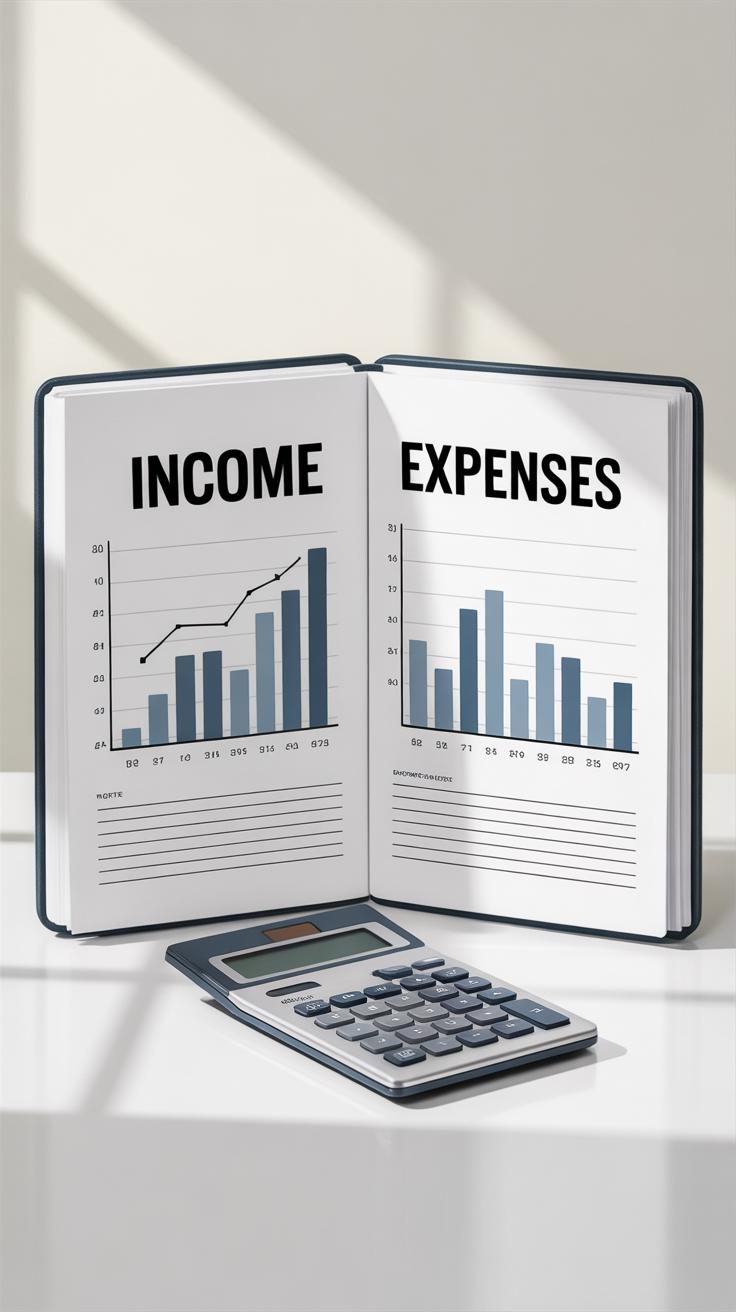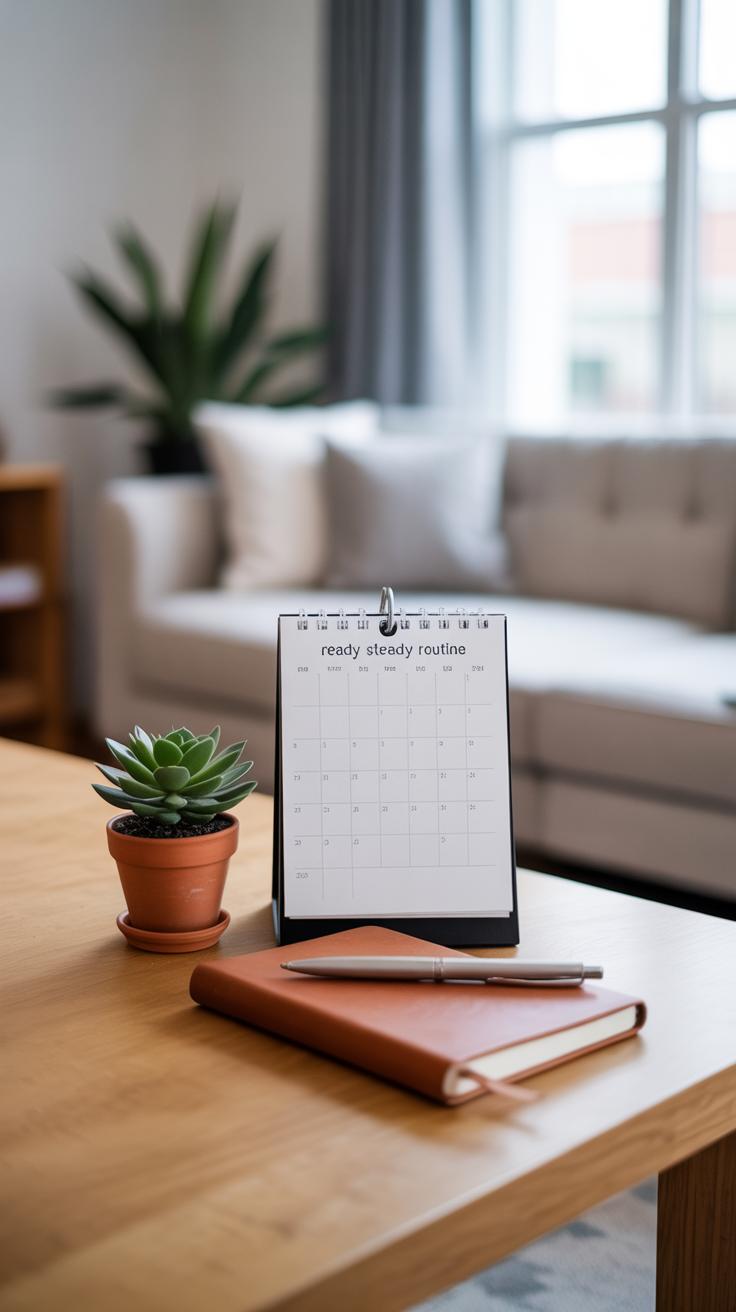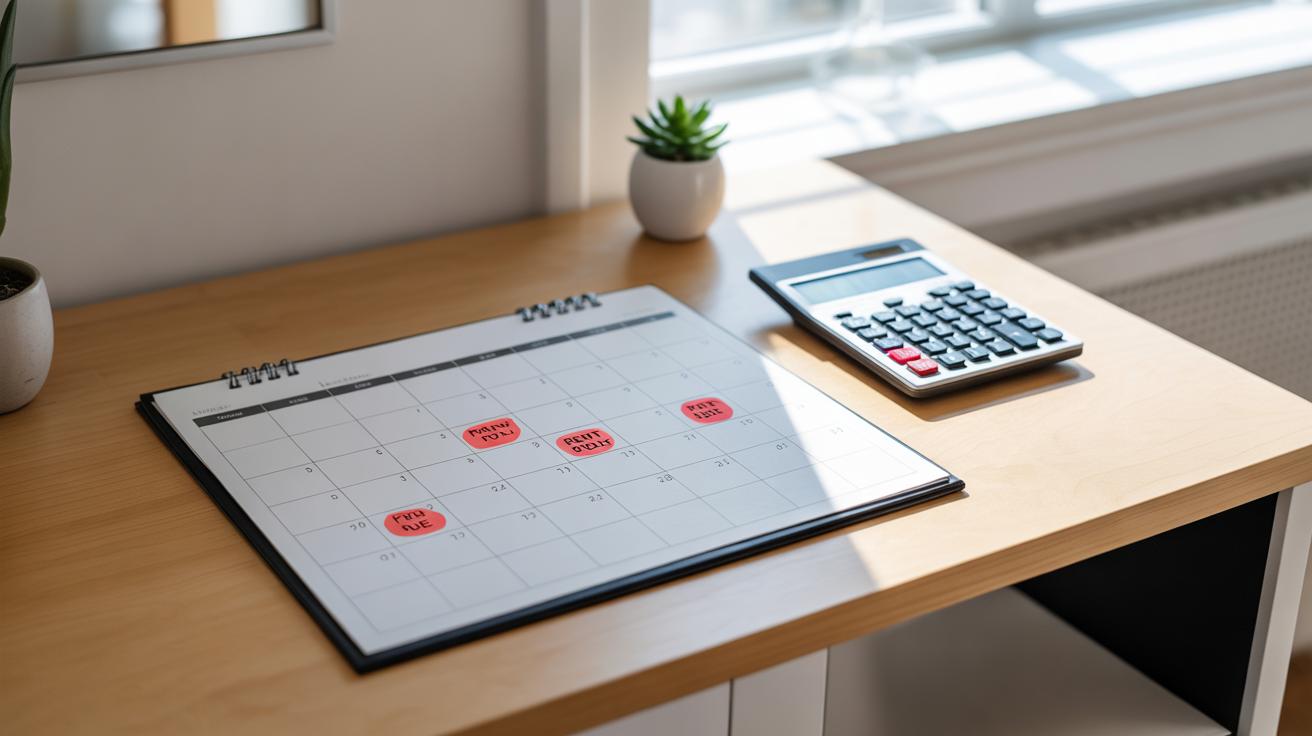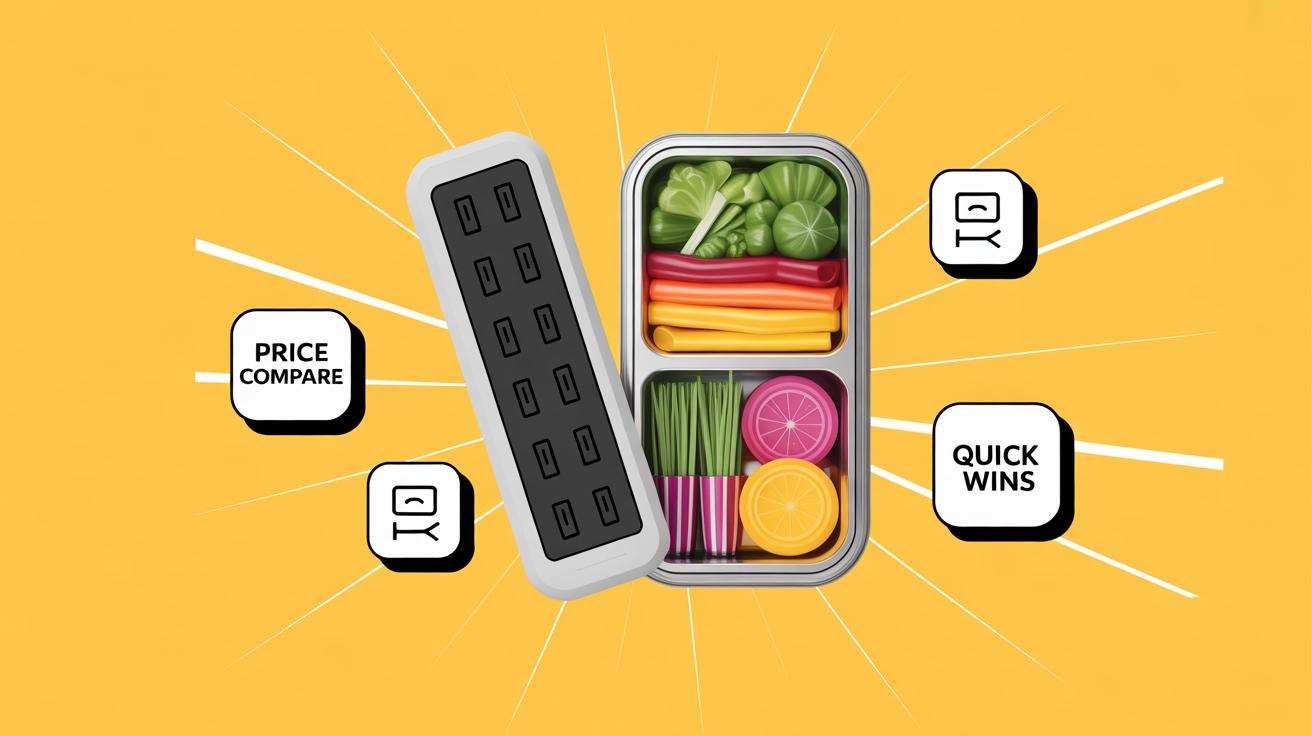Introduction
Money management is a skill that helps you control your money so it works for you. Understanding how to manage your money well can ease stress and build a strong financial future. This article offers clear and easy money management advice you can actually follow.
You will discover simple steps and practical tips to budget effectively, save regularly, spend wisely, and plan for big expenses. This advice is easy to put into practice right now, no matter your income or goals. Let’s explore how you can take charge of your money today.
Understanding Your Income and Expenses
Identify Your Income Sources
You might think you know how much money you get each month, but do you really? It’s worth pausing to list every source of income you have. This doesn’t just mean your main job’s paycheck. Side gigs, freelance work, occasional bonuses, interest from savings, or even gifts—these all count. When you see the full picture, it’s easier to know what you’re working with. Knowing your total income is like setting the starting line before you race. Without it, budgeting feels more like guessing.
Track Every Expense
On the other side, expenses sneak up on you in the smallest ways. The morning coffee, that extra snack, or a few apps you didn’t buy intentionally but ended up paying for—these do add up. Tracking every expense daily, weekly, or monthly might sound tedious, but it’s the only way to see exactly where your money goes. Writing things down honestly helps—no matter how small. Sometimes, just noticing these little leaks makes it easier to stop them or cut back a bit. What’s your guess on how much those small things cost you each week?
Listing all your income and expenses, side by side, isn’t just an exercise in paper shuffling. It reveals the gaps and overlaps, the areas where you might be overspending or where more money is coming in than you thought. Maybe you’ll spot an extra income source or realize a recurring expense you forgot about. Either way, this clarity makes managing money less stressful and more grounded in reality.
Creating a Simple Budget You Can Stick To
Start by writing down your total income. This should include your salary, any freelance work, or other money that comes in regularly. Then, list all your expenses, from rent and bills to groceries and little treats like coffee or streaming subscriptions.
Next, try a simple step-by-step approach:
- Subtract your total expenses from your income. If the result is negative, you know you need to cut back somewhere.
- Group expenses into categories: essentials like bills and food, and non-essentials like entertainment.
- Decide how much you want to spend in each category. For essentials, aim for fixed amounts, but for fun money, be a bit flexible.
Setting spending limits can feel tricky. You might wonder, how much is too much on dining out? Or is allocating 10% for entertainment realistic? There’s no perfect answer. Listen to your habits but be honest too—sometimes we underestimate day-to-day costs.
And remember, budgets aren’t set in stone. Your income or priorities might change—maybe a new job or unexpected expenses show up. So, revise your plan quietly every month. Small tweaks help the budget feel less like a cage and more like a helpful guide. It’s okay if it doesn’t look perfect right away. What matters is finding something that works for you, and actually using it.
Building an Emergency Fund
Having money set aside for emergencies can make a huge difference when unexpected expenses come up. Trust me, life throws curveballs—car troubles, medical bills, or even sudden job changes. Without a cushion, these events might force you into debt or panic. But with a bit saved, you get to handle things more calmly, giving yourself some breathing room.
Starting an emergency fund doesn’t mean you need to stash a fortune overnight. The trick is to grow it little by little. Even if you put aside a small amount each month, it adds up. Think of it like planting a seed—you don’t see a full tree right away, but eventually, it’s there when you need it.
Decide Your Emergency Fund Goal
Figuring out how much to save can be tricky. A common guideline is aiming for three to six months’ worth of essential expenses—things like rent, food, and bills. But, you might find that this range feels too low or high depending on your situation. If your income feels unstable or you have dependents, maybe lean toward a larger goal. Or, if things feel pretty steady, even three months could offer enough peace of mind.
Save Regularly, Even Small Amounts
Consistency matters more than size at the start. You don’t need to pump in big chunks right away. Setting aside a small percentage of your income monthly, like 5% or 10%, keeps the habit alive. You might miss having that money now, but later on, that fund could save you from real stress. I’ve seen friends start with just $20 a month. It wasn’t much, but after a year, they had a safety net that made a surprise car repair less scary.
So, ask yourself: how much can you realistically put away each month without breaking your budget? Then start there. It might feel slow, but slow is better than never.
Smart Ways to Manage Debt
Managing debt can feel overwhelming, maybe even impossible at times. But the truth is, understanding what you owe and how interest works gives you a real advantage. Start by listing every debt—credit cards, loans, anything you owe. Write down the balance, the minimum payment, and especially the interest rate. Interest can sneak up on you; a small balance with a high rate can cost more than a bigger loan with low interest over time.
Once you know what’s on your plate, make a plan. Decide which debts to tackle first. Some prefer paying off the smallest balances to feel quick wins, while others target high-interest debt to reduce long-term costs. You might even try a mix, depending on what keeps you motivated.
Stick to your plan with regular payments, aiming to pay more than the minimum when possible. It’s easy to slip back into old habits, so keep your goals visible. Maybe celebrate small milestones. Debt gets smaller with every payment, even if progress sometimes feels slow or uneven.
Using Credit Cards Responsibly
Credit cards can be useful tools when you understand how they work and keep a close eye on your spending. Essentially, a credit card lets you borrow money up to a certain limit. You purchase now but pay later. The tricky part is the interest rates—they tend to be high if you don’t clear your balance on time. It’s easy to slip into the trap of overspending because it doesn’t feel like using your own money. I’ve seen people struggle just because they treated cards like extra cash instead of a loan that needs quick repayment.
Pay Off Your Balance Each Month
Paying your full balance every month eliminates interest charges completely. That alone can save you a surprising amount over time. Plus, it sends a positive signal to credit bureaus, boosting your credit score. I admit, it’s tempting to just pay the minimum and delay the rest, but that’s costly in the long run. Think of it like this: if you always pay in full, credit cards become a convenience, not a debt trap. It’s a habit that might feel challenging at first but becomes second nature.
Limit Your Credit Card Use
Keeping your credit card use manageable matters more than you might expect. Setting a personal limit below your maximum credit allows you to avoid surprises. Track your purchases regularly—almost like balancing a checkbook. Some apps make it easier, but even a quick log in the Notes app helps. When you start to wonder if you’re spending too much, pause and reevaluate. You want to maintain control, not just react when the bill arrives. It’s about restraint and awareness, not just cutting cards entirely.
Saving for Big Purchases and Goals
When you think about saving for something big—a car, a vacation, or maybe even a home—it can feel overwhelming at first. But setting clear goals helps a lot. Try writing down exactly what you want to buy and why it matters to you. This isn’t just some abstract task; putting your goals on paper makes the whole process more real. You can look back at your list whenever you’re tempted to spend that money elsewhere.
Another step that’s helped me—and others I know—is using separate savings accounts. It’s easy to lose track if everything’s lumped together. For example, having one account just for your vacation fund and another for a down payment on a house keeps those goals distinct. You’re less likely to dip into your car fund to pay for impulse buys or day-to-day expenses.
Patience plays a role here, too. These things don’t happen overnight. You might have to shift some habits, maybe cut back on small luxuries that add up. But watching those savings grow slowly can actually keep you motivated. It’s tempting to want everything immediately, but steady progress often works better long-term. Do you think you’d be okay waiting a bit to get what you really want? Planning carefully and keeping separate accounts can help you find out.
Planning for Retirement Early
Starting to save for retirement early might sound obvious, but many people still put it off. I guess it feels far away, like something to worry about “later.” But the truth is, time is your best ally here. The longer you let your savings grow, the better off you’ll be. Even small amounts help. Imagine setting aside just $20 a week. It doesn’t seem like much, but over decades, that adds up more than you might expect.
One simple way to get started is to automate your savings. Many employers offer 401(k) plans, which are pretty straightforward—money comes out of your paycheck before you even see it. You might also look into IRAs. They’re personal accounts you can open on your own, with different rules depending on what fits your situation.
Saving regularly, no matter how small, leverages compound interest—the idea that your money earns returns, and those returns earn returns too. Kind of like a snowball effect. It’s not immediate, and that’s the tricky part; patience matters here. If you start late, you have to save a lot more to catch up, which sometimes feels overwhelming. So maybe ask yourself—could you just start with whatever you can spare right now? That’s really the key.
Staying Motivated and Adjusting Your Plan
Track Your Progress Regularly
Keeping an eye on your income, spending, and savings isn’t always fun, but it really helps you stay aware of where your money goes. When you check in on your progress—maybe once a week or month—it’s easier to spot patterns, both good and bad.
You might notice, for example, that you’re consistently spending less on groceries than expected, or maybe that extra coffee habit quietly adds up. Seeing these details can encourage you to tighten things up or reward yourself for small wins.
Tracking also brings clarity. If your savings grow slowly, you might feel tempted to give up, but seeing the numbers in black and white reminds you that even small steps add up. It’s kind of like having a mirror for your money habits.
Adapt Your Plan as Needed
Life doesn’t stay the same. Maybe you lose a job, get a raise, or face unexpected bills. When that happens, sticking rigidly to your old budget can be frustrating or impossible. That’s where flexibility comes in.
Ask yourself if your goals still fit your current situation. If your rent jumps or you start a new side gig, your plan should shift too. Maybe lowering dinner expenses for a few months makes sense, or perhaps you can set aside more for a new goal.
Changing your plan isn’t failure. Instead, think of it as adjusting your route on a journey. You might slow down, speed up, or take a detour, but you’re still moving toward your destination. The trick is to stay honest with yourself and accept that budgets, like life, need room to breathe.
Conclusions
Good money management is not about complicated formulas or big sacrifices. It’s about simple, consistent actions that add up over time. By budgeting your income, tracking what you spend, and focusing on saving, you can build financial security.
Start using the tips from this article in your daily life. Your money can help you achieve your goals and give you peace of mind. Keep practicing these habits and watch your financial confidence grow.





















